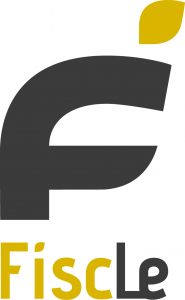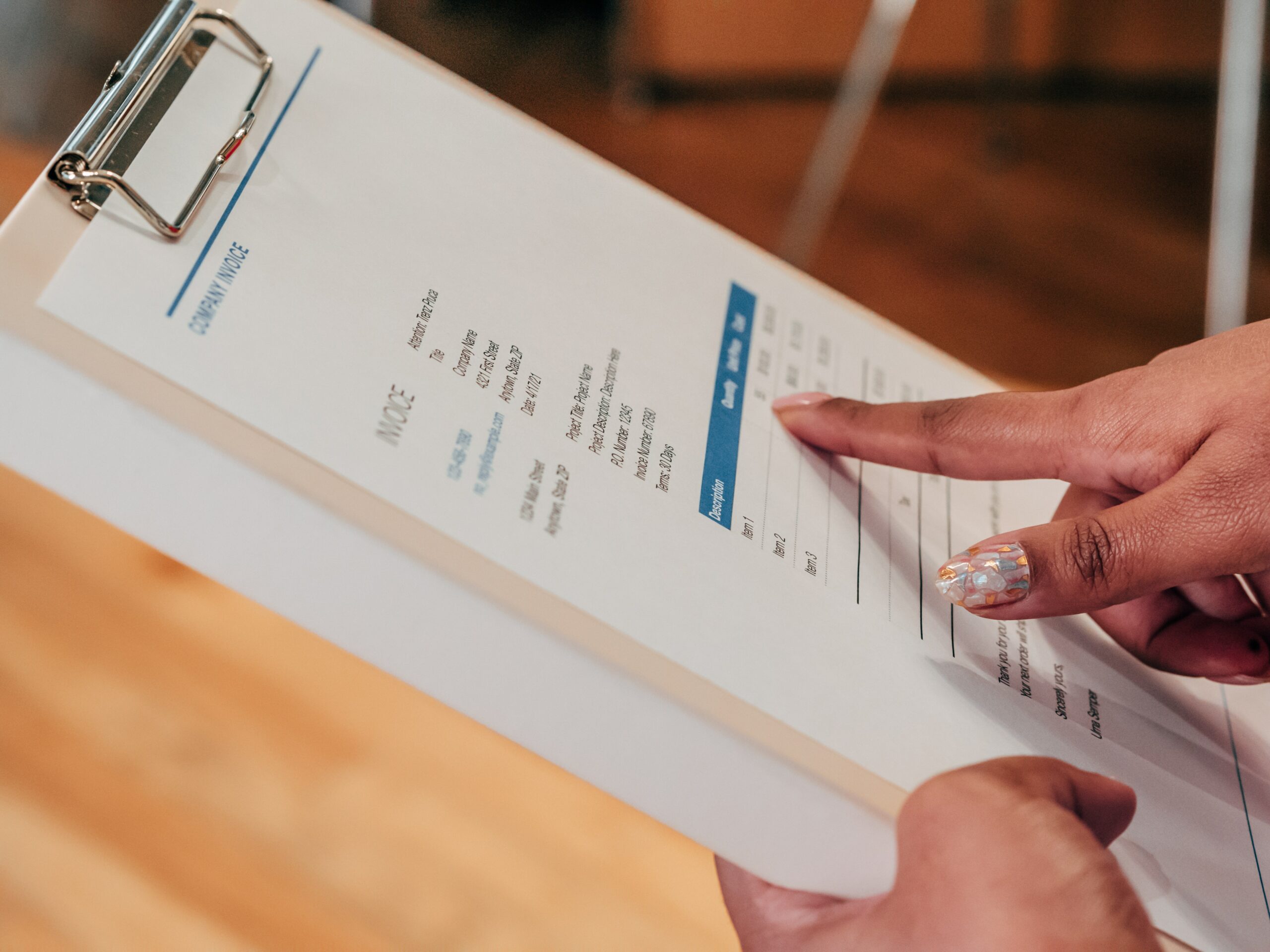INTRODUCTION
1. What is VAT?
Value Added Tax
2. When will the law come into force?
As of January 1, 2023
3. Who pays the VAT?
The consumer
4. Who charges the VAT and pays the tax to the tax authorities?
An entrepreneur
5. Who is an entrepreneur?
- anyone who independently practices a profession or business in Suriname
- the person who exploits an asset in order to obtain sustainable income from it
- bodies governed by public law, which, other than as an entrepreneur, perform services which by their nature can also be performed by entrepreneurs and in respect of those performances have been designated as an entrepreneur by a decision of the Minister
- a fiscal unity, on request to the VAT Inspector
6. When must an entrepreneur pay the VAT received at the latest?
The VAT is not due when it is received, but when the invoice is issued to a customer. An entrepreneur must have filed the tax return and made the payment of the VAT due for a calendar month before the 16th day of the following month.
7. What happens if an entrepreneur does not submit the tax return and make the payment before the 16th day of the following month?
The Tax Collector will charge interest.
The Inspector can impose an additional assessment with a maximum fine of SRD 20,000. Interest is also charged on the additional assessment.
8. What is taxed?
- Delivery of goods in Suriname
- Providing services in Suriname
- Import of goods into Suriname
RATE
9. What rates do you have in the VAT law?
The rates are:
- 10%
- 0%
- 5%
- 25%
In addition to the rates, there are also “exemptions” included in the VAT law.
10. What is taxed at the 10% rate?
- Delivery of goods
- Services
- Import of goods
11. What is taxed at the 0% rate until October 1, 2023?
- The delivery of water and related services by a state-owned enterprise or government agency for domestic use only and other supply of water in containers of at least five (5) gallons or more
- The delivery of electricity and related services and cooking gas
- Domestic passenger and freight transport by road, water and air
- The services provided by hospitals and laboratories for medical research
- The import and delivery of medical devices and aids, such as orthopedic articles and appliances – including medical consumables, medical-surgical belts and straps as well as crutches – dentures, artificial teeth, artificial eyes, artificial limbs and similar articles, hearing aids for the hard of hearing, fracture splints and other articles and apparatus for the treatment of bone fractures, health spectacles, glasses and lenses
- The import and delivery of medicines
- Local health insurance, accident insurance and life insurance
- The provision of public education that falls under the supervision of the Ministry of Education, Science and Culture, including teaching materials, school supplies and school uniforms
- Funeral services
- The care of children in childcare centers
- The care of the elderly, the needy and old people’s homes
- Patient and casualty transport
- The following services:
- giro services relating to deposits, current accounts, payments, transfers, receivables, checks and other commercial paper
- granting and brokering credit
- offer the opportunity to withdraw money at the ATM
- The following goods:
- tubers
- fresh fruits and vegetables
- fresh and unprocessed meats
- fresh and unprocessed fish
- Eggs
- oatmeal
- flour, bread and cassava bread
- rice
- paddy
- kidney beans
- green peas
- yellow peas
- salt
- milk
- onions
- garlic
- cheese, peanut butter and jelly
- tea
- canned sardines
- soya oil
- sunflower oil
- white sugar
- brown sugar
- baby food
- infant food from cereals
- match
- mosquito candle
- sanitary towels and tampons
- contraceptives
- disposable diapers
- bath soap
- toilet paper
- The import by and delivery and services, with the exception of supplies of food, drink and tobacco products, business gifts and other gifts, wages in kind and opportunities for entertainment, motor vehicles intended for passenger transport and of goods or services related to such motor vehicles, except for car dealers, car leasing companies and motor vehicles with a maximum permitted mass of more than 3,500 kg, to:
- contractors and subcontractors pursuant to the Petroleum Act 1990, as it reads after amendments thereto
- state-owned enterprises under the Petroleum Act 1990, as it reads after the amendments thereto
- Imports by and supplies and services to:
- gold mining companies under agreements with the status of law
- public bodies
- The domestic delivery of:
- gold to gold buyers subject to a license obligation within the meaning of the Companies and Professions Act
- fresh fish to fish processing companies and fish exporters subject to a license requirement within the meaning of the Companies and Professions Act
- The domestic supply of works of art
- Delivery of exported goods
- Services consisting of the provision of international freight transport by means of aircraft and ships
- Services performed in Suriname with regard to outgoing goods
- Services consisting of outsourcing activities that are performed in Suriname for a customer not residing or established in Suriname
12. What is taxed at the 0% rate until November 1, 2023?
The rental for at least 3 months of real estate, which is furnished, intended and used by the tenant as a main residence for permanent residence. Starting from November 1, 2023, the rental of real estate will be taxed at a rate of 10% VAT.
13. What is taxed at the 0% rate from October 1, 2023?
- The import by and delivery and services, with the exception of supplies of food, drink and tobacco products, business gifts and other gifts, wages in kind and opportunities for entertainment, motor vehicles intended for passenger transport and of goods or services related to such motor vehicles, except for car dealers, car leasing companies and motor vehicles with a maximum permitted mass of more than 3,500 kg, to:
- contractors and subcontractors pursuant to the Petroleum Act 1990, as it reads after amendments thereto
- state-owned enterprises under the Petroleum Act 1990, as it reads after the amendments thereto
- Imports by and supplies and services to:
- gold mining companies under agreements with the status of law
- public bodies
- The domestic delivery of:
- gold to gold buyers subject to a license obligation within the meaning of the Companies and Professions Act
- fresh fish to fish processing companies and fish exporters subject to a license requirement within the meaning of the Companies and Professions Act
- Delivery of exported goods
- Services consisting of the provision of international freight transport by means of aircraft and ships
- Services performed in Suriname with regard to outgoing goods
- Services consisting of outsourcing activities that are performed in Suriname for a customer not residing or established in Suriname
14. What is taxed at the 5% rate until November 1, 2023?
- International health insurance
- The delivery and import of motor gasoline and other similar motor fuels and diesel oil
15. What is taxed at the 5% rate from November 1, 2023?
- The delivery of water and related services by a state-owned enterprise or government agency for domestic use only and other supply of water in containers of at least five (5) gallons or more
- The delivery of electricity and related services and cooking gas
- The domestic transport of goods by road, water, and air.
16. What is taxed at the 25% rate?
The delivery of:
- automobiles and other motor vehicles designed primarily for passenger transport with a cubic capacity exceeding 2500 cm³ and with a cif value of US$ 40,000 or more, excluding motor vehicles with electric propulsion.
- motorcycles with a cylinder capacity exceeding 125 cm³
- speedboats, watercraft, yachts, sports and other pleasure craft
- helicopters and aircraft for the carriage of less than 10 persons
- weapons, ammunition, parts and accessories thereof
- firework
17. What is exempt from VAT until October 1, 2023?
- The supply of immovable property and of rights to which it is subject
- Granting access to public entertainment pursuant to the Entertainment Tax Act
- Providing the opportunity to participate in games of chance according to the Casino Tax Act 2002, as it reads after the amendments thereto
- Providing the opportunity to participate in the lottery in accordance with Article 1 of the Lottery Act 1939, as it reads after the amendments thereto
- The services provided by doctors, dentists, dental technicians, nurses and midwives, physiotherapists and remedial therapists, chiropractors, speech therapists, dieticians, psychologists and podotherapists as such, as well as youth dental care and oral hygiene and the services of alternative healers and other paramedics
- The supply of goods and the provision of services by organizations of a social, cultural, charitable, sporting or religious nature, provided that the organization has no profit motive and there is no serious distortion of competition
- The supply of goods and the provision of services to embassies, consulates and missions based on reciprocity
18. What is exempt from VAT from October 1, 2023?
- Providing the opportunity to participate in games of chance according to the Casino Tax Act 2002, as it reads after the amendments thereto
- The services provided by doctors, dentists, dental technicians, nurses and midwives, physiotherapists and remedial therapists, chiropractors, speech therapists, dieticians, psychologists and podotherapists as such, as well as youth dental care and oral hygiene and the services of alternative healers and other paramedics
- The supply of goods and the provision of services by organizations of a social, cultural, charitable, sporting or religious nature, provided that the organization has no profit motive and there is no serious distortion of competition
- The domestic transport of passengers by road and water
- The services provided by hospitals and laboratories for medical research
- The import and delivery of medical devices and aids, such as orthopedic articles and appliances – including medical consumables, medical-surgical belts and straps as well as crutches – dentures, artificial teeth, artificial eyes, artificial limbs and similar articles, hearing aids for the hard of hearing, fracture splints and other articles and apparatus for the treatment of bone fractures, health spectacles, glasses and lenses
- The import and delivery of medicines
- Local health insurance and life insurance
- The provision of education by recognized organizations and institutions, subject to the legal supervision of the Ministry of Education, Science, and Culture, as well as the import and supply of educational materials, school supplies, and school uniforms
- The care of children in childcare centers
- The care of the elderly, the needy and old people’s homes
- Patient and casualty transport
- The following financial services:
- Currency exchange transactions involving foreign currency, whether by exchanging banknotes or coins, debiting or crediting accounts, or otherwise;
- Issuance, payment, collection, or transfer of cheques or letters of credit, and similar digital transactions;
- Issuance, allocation, drawing, acceptance, approval, or transfer of debt securities and bonds;
- Issuance, allocation, or transfer of shares or participation certificates;
- Provision and intermediation of credit;
- Trading derivatives or granting options, excluding the delivery of underlying goods and services.
- The following goods:
- Fresh vegetables
- Fresh chicken
- Fresh and unprocessed fish
- Eggs
- Flour, bread, and cassava bread
- Rice
- Paddy
- Milk
- Soybean oil
- Matches
- Contraceptives and birth control products
- Disposable diapers
- Bar soap
- Toilet paper
- the domestic delivery of:
- gold to gold buyers subject to a license obligation within the meaning of the Companies and Professions Act
- fresh fish to fish processing companies and fish exporters subject to a license requirement within the meaning of the Companies and Professions Act
- The domestic supply of works of art
- The import and supply of prepared feed and raw materials for the preparation of feed for the livestock and poultry sector, as well as insecticides, fertilizers (natural and chemical), chemical pesticides, and seeds
- The supply of goods and the provision of services to embassies, consulates, and missions based on reciprocity
19. What is the difference between 0% and exemption?
0% is a rate with the result that all provisions of the VAT Act apply to the entrepreneur. Exempt means that the provisions of the VAT Act do not apply. From a legal point of view, the biggest difference is that if the 0% rate applies, the entrepreneur may make use of the VAT deduction options in the VAT law. The entrepreneur who is exempt cannot make use of the deduction options in the VAT law.
ADMINISTRATION
20. Can an entrepreneur deduct VAT paid on the VAT return?
If an entrepreneur uses the goods and services for VAT-taxed transactions, this is allowed. Deduction is possible from:
- VAT charged for supplies and services of entrepreneurs
- VAT paid on import
- VAT based on the reverse charge rule
21. Which VAT cannot be deducted by an entrepreneur?
VAT on:
- providing of food, drink and tobacco products
- providing of business gifts and other gifts
- providing of wage in kind and opportunity to relax
- motor vehicles intended for the carriage of passengers and of goods or services related to such motor vehicles, except for:
- dealers and leasing companies
- motor vehicles with a maximum authorized mass exceeding 3,500 kg
22. What is an entrepreneur obliged to state on an invoice?
- the date of issue
- a sequential number, with one or more series, which unambiguously identifies the invoice
- the tax identification number under which the entrepreneur has performed the delivery or service
- the tax identification number of the customer to whom the supply or service has been performed and from whom the tax is levied
- the name and address of the entrepreneur and his customer
- the quantity and nature of the goods delivered or the scope and nature of the services provided
- the date on which the delivery or service took place or was completed
- the compensation in respect of each rate or exemption, the unit price excluding tax
- the rate applied
- the amount of tax due
- in case of an exemption, mention thereof
- for the supply and import of motor vehicles the make, model, cylinder capacity and chassis number, and for work on the motor vehicle the number plate
- if the customer is obliged to pay the tax, the statement “VAT reversed”
23. What should an entrepreneur keep in the financial administration in order to file a correct VAT return?
The entrepreneur must keep track of:
- how much VAT the entrepreneur charges on invoices issued
- how much VAT the entrepreneur pays to other entrepreneurs from whom he purchases services and goods, and also how much VAT he pays on import
REFUND TAX RETURN
24. What does refund mean?
Refund means restitution. If an entrepreneur has paid SRD 100,000 in a given month for VAT that may be deducted and has charged SRD 80,000 VAT on invoices issued, the refund will be SRD 20,000, being the SRD 80,000 minus SRD 100,000.
25. What should an entrepreneur do to receive a refund?
An entrepreneur must submit the BTW tax return on time. The refund will be refunded, by the Tax Collector, within 1 month after the right to a refund has arisen. The Tax Collector can decide to set off the refund against outstanding VAT tax debts, interest, fines and costs of the entrepreneur at the Tax Collector.
26. When will an entrepreneur not receive the refund within 1 month?
An entrepreneur will not receive the refund within 1 month if the Inspector has informed this entrepreneur in writing and with reasons of an extension of the term for a maximum of 2 months.
27. Is an entrepreneur entitled to compensation for interest regarding a late refund?
Yes, if the refund is not made within the specified period.
SPECIAL PROVISION
28. From what taxed turnover per calendar year is an entrepreneur obliged to charge VAT to its customers?
From SRD 1,000,000 taxed turnover per calendar year
29. What are the consequences for an entrepreneur with a taxed turnover per calendar year of less than SRD 1,000,000?
Such an entrepreneur is exempt from filing a tax return and paying tax and is not entitled to deduct VAT. An entrepreneur with a taxable turnover of less than SRD 1,000,000 is not obliged to register.
IMPORT
30. How is the VAT on import calculated?
- 10% of the total of the:
- the customs value +
- the import duty +
- the excise duties +
- other import duties
The customs value is determined in accordance with the provisions on value in the Act on Tariff of Import Duties 1996.
31. Is it possible to be exempt from VAT on imports?
The Minister may, subject to conditions to be set, grant an exemption from VAT for the import of:
- goods under the Raw Materials Decree 1997
- other goods for which there is an entitlement to exemption from import duties, with the exception of goods that comply with the CARICOM origin rules.
VAT AND SALES TAX
32. Will the Sales tax be abolished?
The Sales Tax Act will be abolished with the understanding that the Sales Tax Act will continue to apply with regard to periods before January 1, 2023.
33. Is an entrepreneur entitled to a deduction of Sales Tax on the purchase or import of goods that are resold with VAT?
Yes, for this purpose an entrepreneur must submit a request to the Inspector, whereby proof must be provided of:
- the payment of sales tax;
- the fact that the goods were included in the entrepreneur’s inventory as of December 31, 2022
- and the resale of the goods subject to VAT
- the import of the goods actually took place in the calendar year 2022
- the use of the goods for the performance of taxable transactions
The deduction is only allowed in the tax return periods that fall in the calendar year 2023
The refund of the eligible amount to the entrepreneur will take place up to and including 30 June 2023 within two months.
Retailers have the opportunity to sell food from stock, purchased until December 31, 2022, without charging taxes until March 31, 2023.
REGISTRATION
34. The taxable turnover for the year 2022 is less than SRD 1,000,000. Does the entrepreneur have to register?
If the entrepreneur does not expect a taxable turnover of more than SRD 1,000,000 in the year 2023, he is not obliged to register.
35. The taxable turnover for the year 2022 is less than SRD 1,000,000. The entrepreneur does not expect a taxable turnover of more than SRD 1,000,000 for the year 2023. In August 2023 it appears that the taxed turnover has passed the limit of SRD 1,000,000. Does the entrepreneur have to register?
Yes, the entrepreneur must register (in August 2023) and must charge VAT to the customers from that moment on.
36. The taxed turnover for the year 2022 is less than SRD 1,000,000 and the entrepreneur does not expect a taxed turnover of more than SRD 1,000,000 in the year 2023. The entrepreneur wishes to register because of the possible pre-deduction of VAT. Can the entrepreneur register?
Yes, that’s possible. The entrepreneur must charge VAT to the customers after registration. Such an entrepreneur is obliged to file a return and pay tax and is entitled to deduct VAT.
NEXT STEP
37. What steps should an entrepreneur take now?
- set up administration in accordance with the requirements of the VAT law
- design invoices in accordance with the VAT law
- Register online (see https://belastingdienst.sr/btw/ondernemers/ )
31. What can FiscLe Consultancy NV do for an entrepreneur?
- provide a VAT training in which:
- the participants are introduced to VAT
- the financial department gains insight into the organization of the administration
- advise on specific VAT issues



